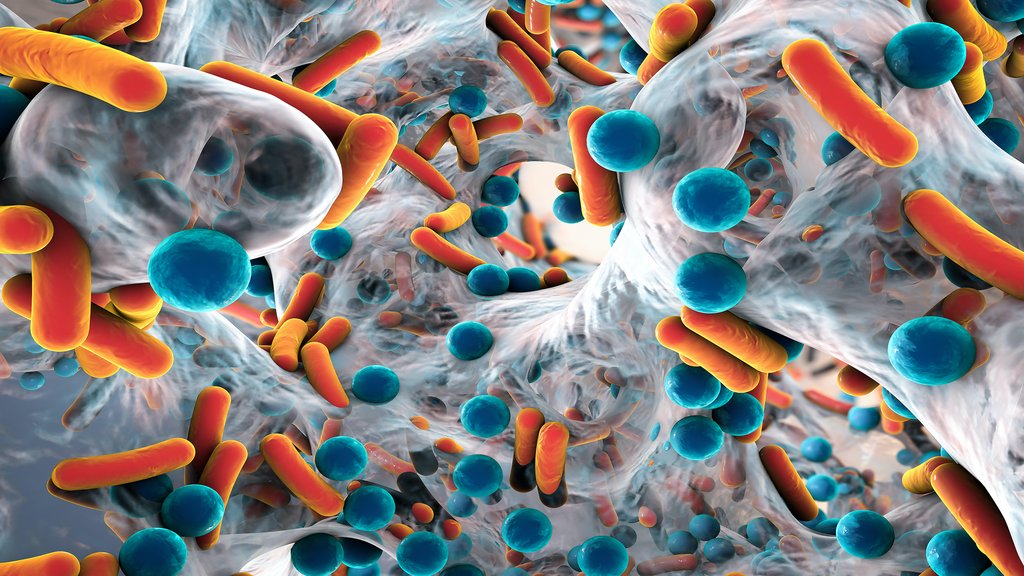Research - 25.01.2021 - 00:00
25 January 2021. Medical and microbiological research has long been investigating the interaction between our gut and our brain. Alongside other mechanisms, one of the main routes of communication is the vagus nerve. This nerve extends across large areas of our body and, as well as other organs in the body, it directly links the gut to our brain.
Communication is carried out by various messengers, known as neurotransmitters, such as serotonin and dopamine. Emotions, stress resistance and the perception of pain are controlled by these messengers. These messengers are produced both in the gut and the brain, thus allowing reciprocal influence.
The role of gut flora in communication between the gut and the brain
One of the most fascinating and influential findings in recent decades is the fact that the micro-organisms in our gut (also known as intestinal microbiomes) play a crucial role in the communication between the gut and the brain.
There are more micro-organisms in one gram of gut contents than there are humans on the planet. In total, the gut is colonised by around 100 trillion bacteria cells, which can weigh up to 2 kilos. The most common bacteria are “good” and help to process food, promote healthy digestion and support the immune system.
With regard to communication between the gut and the brain, bacteria in the gut flora contribute towards providing important messengers. One of the important building blocks for the production of the “happiness hormone” serotonin is the amino acid tryptophan, which is provided by the bifidobacteria colonies in the gut flora. The prevalence of these bacteria can thus significantly influence serotonin levels and therefore mental wellbeing. The consequences of a lack of serotonin can range from listlessness, irritability and anxiety to depression. There are similar links between other bacteria colonies and messengers. There are also suggestions that some types of gut bacteria are able to directly produce messengers.
The influence of gut flora on decisions and personality
The continuing advancement in research in this area is uncovering more and more links between the intestinal microbiome and our brain. It is very probable that our gut bacteria play a part in our social behaviour, our cognition and the onset of neurodegenerative (e.g. Alzheimer's, Parkinson's) and psychological (e.g. depression, anxiety disorders) illnesses.
The scientific input to the University of St.Gallen and University of Bern study is to better understand how intestinal microbiomes influence our decisions in various spheres of life. Findings so far suggest a possible link to the willingness to take risks, to self-control and impatience or even to the willingness to help other people. The current study thus contributes towards transferring existing findings from medical and microbiological research to socially relevant issues in economic research.
Criteria for taking part in the study
If you meet all criteria for participating in the study, you can simply take part from home. In addition to remuneration, participants can also receive a free laboratory analysis of their intestinal microbiome, should they wish. Enrolment and further information: mikrobiom-studie.ch (Registration possible until 7 February 2021)
Image: Shutterstock/Kateryna Kon
More articles from the same category
Discover our special topics
